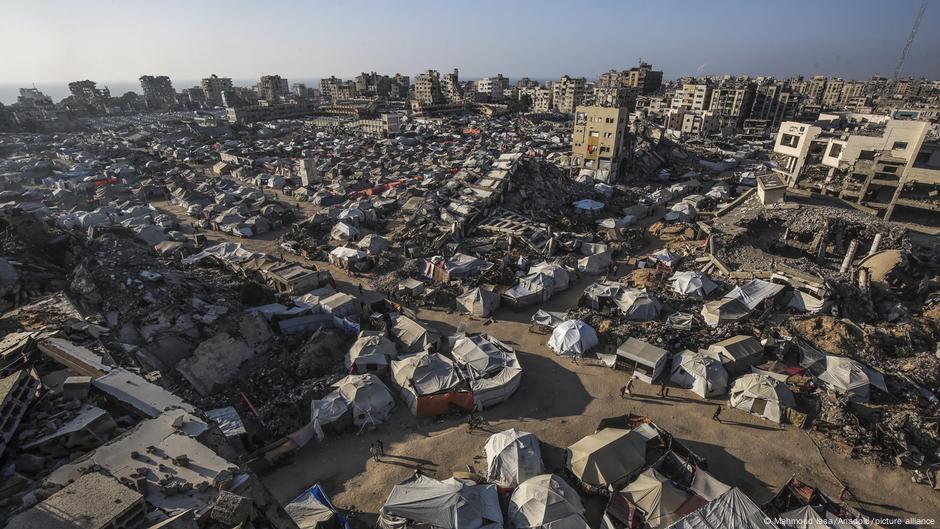Following a critical report from the European Union indicating that Israel may be violating human rights within Gaza, Spanish Prime Minister Pedro Sanchez has condemned his fellow EU leaders for their reluctance to suspend a significant trade agreement with Israel. He described the situation in Gaza as one of ‘catastrophic genocide.’
According to authorities in Gaza, over 55,000 Palestinians have died as a result of prolonged Israeli bombardments, a claim Israel categorically denies, asserting it is engaged in conflict with Hamas following a large-scale terror attack in 2023.
The EU’s report, which was distributed confidentially among member states last week, pointed to evidence that Israel may be infringing upon its human rights obligations. It cited potential indiscriminate attacks on civilians, the blockade on essential goods, and assaults on medical facilities as breaches of international law. In conclusion, the report stated, “There are indications that Israel would be in breach of its human rights obligations.”
Upon arriving for an EU summit in Brussels, Sanchez stated, “It is more than obvious that Israel is violating Article 2 of the EU-Israel agreement.” He contrasted this with the EU’s vigorous response to Russia’s aggression in Ukraine, noting, “We have had 18 sanctions packages against Russia… Europe, with its double standards, is not capable of suspending an association agreement.”
Despite Spain and Ireland openly advocating for the suspension of the trade agreement, such a measure lacks support from the majority of the other 27 EU states. Key allies of Israel, including Greece, Germany, Hungary, Austria, and Bulgaria, have maintained their support. German Chancellor Friedrich Merz has explicitly dismissed the possibility of suspension, calling it ‘out of the question’ for the German government.
The existing trade deal, active since 2000, facilitates significant economic exchange amounting to approximately $50 billion annually and involves political dialogue and collaboration on research and technology. While a partial suspension of the agreement could be pursued with a simple majority, sources indicate there is insufficient support for this action as well.
EU foreign affairs chief Kaja Kallas emphasized that the intention behind the report is not to penalize Israel but to encourage improvements in the humanitarian situation in Gaza. She stated, “If the situation does not improve, then we can also discuss further measures and come back to this in July.”
During the summit, EU leaders acknowledged the report without making any direct references to human rights violations, opting instead to revisit the issue in the following month. They also expressed concern over the dire humanitarian conditions in Gaza.
Spain has been advocating for an EU arms embargo on Israel, but Germany, a significant supplier, has reiterated its commitment to arms sales. Limited support for additional sanctions from other nations like Belgium, France, and Sweden also faces the roadblock of requiring unanimous agreement.
Irish Prime Minister Michael Martin echoed Sanchez’s sentiments, expressing disbelief over the EU’s inability to exert pressure on Israel. According to Lisa Musiol from the Conflict Resolution think tank Crisis Group, effective measures would likely include an arms embargo and comprehensive sanctions against Israeli officials, although such discussions remain rare among EU leaders.
Recent tensions with Iran prompted some EU states to revert to traditional positions, diluting the previously emerging consensus for a firmer stance against Israel. As noted by Musiol, “It seems that after the recent escalation between Israel and Iran, many member states have fallen into their old positions.”
This shift comes despite a brief period of apparent solidarity within the EU regarding Israel’s actions, as evidenced by a joint statement from France, Britain, and Canada condemning Israel’s military responses in Gaza as disproportionate and potentially against international humanitarian law.
The EU Council summit focused broadly on trade and ongoing armed conflicts, reflecting the complex and often divisive nature of foreign policy within the union regarding its relations with Israel.

